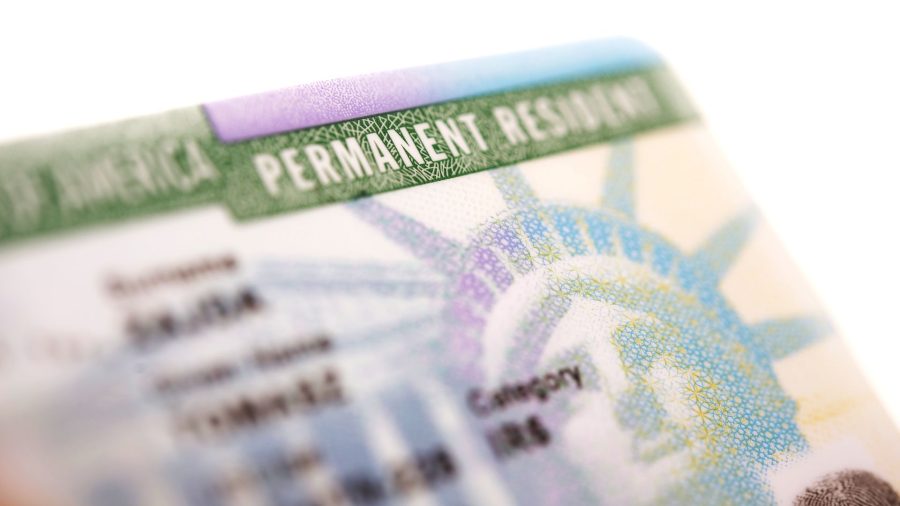If you’re a lawful permanent resident (LPR) of the United States, your Green Card is proof of your status. But like a driver’s license or passport, your Green Card has an expiration date—and failing to renew it on time can cause serious problems.
At Rebecca Black Immigration, PA, we help clients renew their Green Cards every day. In this guide, we’ll explain when you should renew, why timing is important, and how to complete the process correctly. We’ll also discuss situations where legal guidance is especially helpful.
When to Renew Your Green Card
The renewal timeline depends on the type of Green Card you have.
10-Year Permanent Resident Green Cards
If you have a standard 10-year Green Card, you should renew it within six months (180 days) of its expiration date. The U.S. Citizenship and Immigration Services (USCIS) will not allow you to submit your renewal application earlier than this window. Filing too early may result in a rejected or delayed application.
For example, if your Green Card expires on December 1, 2025, the earliest you should file your renewal is June 1, 2025.
2-Year Conditional Green Cards
If your Green Card is valid for only two years, it is likely conditional. These are typically issued through marriage-based or entrepreneur/investor immigration categories.
In this case, you do not renew your Green Card using the regular I-90 form. Instead, you must file a petition to remove the conditions:
-
Form I-751 is used for marriage-based conditional Green Cards
-
Form I-829 is used for investor-based conditional Green Cards
These forms must be filed within the 90-day period before your card expires. If you miss that window, your lawful status could be placed at risk.
Why Renewing on Time Matters
Letting your Green Card expire can create unnecessary complications, even if your permanent resident status remains valid.
First, employment eligibility verification can become difficult. Many employers require a valid Green Card as proof of your right to work. An expired card may delay hiring or cause issues with your current job, even if your immigration status hasn’t changed.
Second, travel can become complicated. U.S. Customs and Border Protection (CBP) and international airlines expect lawful permanent residents to carry an unexpired Green Card. Traveling with an expired card may result in denial of boarding or re-entry to the United States.
Third, state-issued IDs such as driver’s licenses or Real ID-compliant cards often require a valid immigration document. If your Green Card has expired, you may not be able to renew your license or obtain a new one.
Finally, an expired Green Card may interfere with future immigration processes, including naturalization. It’s far easier to avoid these problems by renewing on time.
The Green Card Renewal Process
To renew a standard 10-year Green Card, you must complete Form I-90, Application to Replace Permanent Resident Card. This form is submitted to USCIS and can be filed online or by mail.
You’ll need to provide a copy of your existing Green Card and any documents that support changes to your information, such as a legal name change. You’ll also be required to pay the filing fee, which is currently $455, plus an $85 biometric services fee, for a total of $540. Fee waivers are available for qualifying applicants.
Once USCIS receives your form, they will send a receipt notice (Form I-797). This notice extends your Green Card’s validity for 24 months while the application is being processed. USCIS may also schedule a biometrics appointment to collect fingerprints and photographs. After that, you’ll receive your new card in the mail.
Processing times vary but usually range from 8 to 12 months. You can track your case status on the USCIS website or contact an immigration attorney for assistance.
What If Your Green Card is Lost, Stolen, or Expired?
If your Green Card has been lost or stolen, you should file Form I-90 immediately to request a replacement. Be sure to indicate the card was lost or stolen and provide details, including a police report if available.
If your card is damaged or illegible, you can also use Form I-90 to request a new one. Include a copy of the damaged card when submitting your application.
If your Green Card has already expired, file Form I-90 as soon as possible. Although your legal status does not expire, an expired card can cause legal and logistical problems. Late renewal does not carry an automatic penalty, but it can result in practical difficulties with travel, employment, and identification.
If you’re currently outside the United States and your Green Card is lost or expired, contact the nearest U.S. embassy or consulate. They may be able to issue you temporary travel documentation to re-enter the U.S., after which you should file Form I-90 immediately.
Green Card Renewal Timeline
Once your renewal application is filed, USCIS typically sends a receipt notice within 2 to 4 weeks. A biometrics appointment, if required, is usually scheduled within the next 1 to 2 months. The total processing time can range from 8 to 12 months, depending on USCIS workload and other factors.
The receipt notice acts as temporary proof of your lawful permanent resident status and extends the validity of your Green Card for 24 months. It is important to keep this notice with your expired card during this time.
Common Mistakes to Avoid
Many Green Card holders face issues due to common mistakes. One of the most frequent is waiting too long to file. If you miss the 6-month window before your expiration date, you risk delays that can affect employment or travel.
Another mistake is using the wrong form. Remember that conditional residents must use Form I-751 or I-829—not I-90—to renew their status. Misfiling can lead to rejections or even loss of status in serious cases.
Additionally, failing to update your address with USCIS can cause you to miss important notices or appointments. If you’ve moved, make sure to submit Form AR-11 promptly to keep your contact information current.
When to Consult an Immigration Attorney
While the I-90 process seems simple on paper, real-life circumstances can make it more complicated. You should consult an immigration attorney if:
-
You have a criminal history that could affect your eligibility
-
You’ve been outside the United States for extended periods
-
Your card is already expired and you need to travel soon
-
You previously had an I-90 application denied
-
You’re unsure whether you’re eligible to file I-90 or need to remove conditions
At Rebecca Black Immigration, PA, we help clients identify the correct process and avoid mistakes that could lead to delays, denials, or legal issues.
How Our Firm Can Help
Green Card renewal is a routine part of maintaining lawful permanent resident status, but it can still be stressful and confusing. At Rebecca Black Immigration, PA, we offer end-to-end support—from form preparation and document review to USCIS correspondence and case monitoring.
We also handle complex cases involving expired Green Cards, overseas applicants, lost documents, and more. Our team is committed to keeping your immigration journey on track with clarity and confidence.
Frequently Asked Questions
Can I travel with an expired Green Card?
While it’s not recommended, you may be able to re-enter the U.S. using a receipt notice from USCIS. However, many airlines will not allow boarding without a valid Green Card or temporary travel document.
What happens if my renewal is denied?
A denial doesn’t mean your permanent resident status is revoked, but it can affect your ability to prove your status or apply for naturalization. You may refile or appeal depending on the reason for the denial.
Does my Green Card status expire if my card does?
No. Your status as a permanent resident does not expire, but your card does. However, without a valid card, it’s difficult to prove your status and avoid practical issues.
Can I renew my Green Card too early?
Yes. USCIS will reject a renewal application submitted more than six months before your card’s expiration date.
Need Help Renewing Your Green Card?
If your Green Card is expiring soon—or already has—now is the time to take action. Don’t risk delays that can affect your job, travel plans, or legal status.
Contact Rebecca Black Immigration, PA today for a consultation. We’ll help you understand your options, complete your application, and stay one step ahead of the USCIS process.





